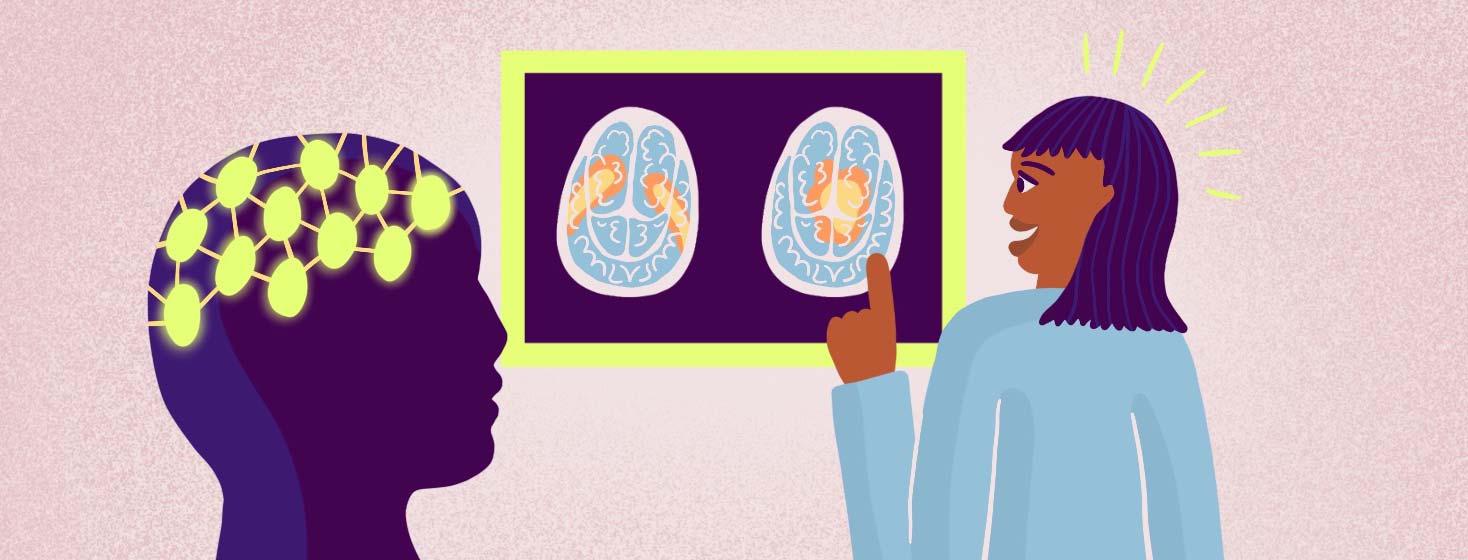Narcolepsy Helped Me Find Something I Love to Do
Narcolepsy has become a huge part of my life in many ways. One of the most recent ways is the program I am in for school and my jobs. A lot has changed in my life in the last year; I am halfway through the program in school, and I also started working 2 new jobs.
Debating going back to school
When I was thinking about going to school, I saw this program that looked very interesting to me, but it wasn’t until a year or so later that I finally decided to go back to school. I went back and forth trying to decide if it was the right thing for me. I am glad I decided to go back.
I am in an electroneurodiagnostic technology program. This program is focused a lot on EEGs (electroencephalograms) but also consists of EMG (electromyography), EMU (epilepsy monitoring unit), sleep, and evoked potentials. So far we have only touched on EEGs and EMGs.
My program activities reminded me of my narcolepsy diagnosis
During the first semester and a half of the program, my classmates and I measured and put electrodes on each other’s heads. This brought me back to when I got my sleep study and MSLT done. It was both weird and exciting to be on the other side of things when I measured and hooked up my classmates.
This whole semester and the rest of my program we are working with patients, which has been even more exciting. I think this program and field really fits me because of my narcolepsy and experiences with having electrodes on my own head.
My goal is to help others get diagnosed faster
I find myself talking to many patients about my narcolepsy because several have asked me how I got into this field. I seem to answer the same thing every single time someone asks me; I say that I have narcolepsy and my end goal is to get into research to help others possibly get diagnosed with narcolepsy or other common misdiagnosed conditions faster than I did. It took me 20 years to get diagnosed.
Not everyone I work with is understanding
I not only am in school full-time, but I also have 2 PRN (as needed) jobs that I started this year. In one of my jobs, I am a unit partner, and I help nurses and nursing assistants with patients and stock supplies on the unit.
I enjoy this job for the most part. As a unit partner, sometimes we have to sit with patients who need a sitter. Almost every shift I work the charge nurse wants me to sit, but due to narcolepsy, I can’t just sit there for a long period of time. I have talked to the nurse managers about not being able to sit, and they are completely fine with it.
Some of the nurses on the other hand, are not. A lot of the nurses are understanding and nice, but there are a few who get mad because I can’t sit. With narcolepsy, sitting for more than 20 minutes at a time doing nothing, and often in dark rooms, is not something I can do without falling asleep. Sitting with patients is the only thing in this job that I can’t do. It wouldn’t be safe for the patient that needs the sitter if I were to just sit there and fall asleep.
Interactions with doctors and residents about narcolepsy
The other job I have is as a clinical technician in the epilepsy monitoring unit. In this job, I watch the EEGs on computers and monitor them. Doing this helps me with my classes, too, because we do EEGs all the time.
A really interesting part of my job is that several neurologists and residents sit near me in the unit. Just recently I heard one of the doctors and residents talking about cataplexy, and of course that caught my attention. I made a comment that I have narcolepsy and we talked about the differences between cataplexy and seizures.
I also asked the doctor if she knows much about narcolepsy, and she said she knows the basics but not a ton. This shows that many doctors are still not very knowledgeable about narcolepsy.
Sometimes it can be hard to stay awake when I am at work because we just sit by the computers and watch the screens. I have noticed that it is easier to stay awake when I have another person working with me and/or I do something else on my computer but make sure I still watch the monitors.
Having narcolepsy helps me connect more deeply with patients
Both school and these jobs have made me realize that this is what I want to do and something I am passionate about. I actually enjoy going to class and work because it is something I love to do.
I am always eager when I get a patient during class because I find it interesting. I get to measure and glue electrodes on patients, watch their EEG, and then take the electrodes off. Even though I never want someone to have a seizure, it is a big learning experience when someone does.
I am glad I found something that I love to do and that I am passionate about. I feel like this career will always have me learning or seeing something new. I think that having narcolepsy makes it so I connect with patients more than people without narcolepsy, which also makes me more empathetic toward people.

Join the conversation